Carta, the global startup that provides software for managing equity ownership, valuations, and fund administration, is building localised products for the African private capital market as it expands into the continent. The growth push is anchored on its full product suite and a focus on smaller startups after hiring Marvin Coleby, the former CEO of Raise.
Coleby, now Carta’s head of product for Asia, the Middle East, and Africa, has joined his former investors to build the plumbing for investing in Africa after shutting down Raise, his Nairobi-based startup that helped African startups raise over $1 billion with its equity management and fundraising software, in September. Coleby is the only former Raise employee who works at Carta.
Rather than simply importing its U.S. model, Carta will take the localisation and regional insight route. “We know how much goes into building software for an underserved market. He’s (Coleby) established many partnerships and relationships across Africa over that time that we think would accelerate our ability to support the market further,” Bhavik Vashi, Carta’s managing director for Asia, Africa, and the Middle East, told TechCabal. “What Marvin brings to the team from a product and an engineering perspective is hugely valuable when we think about how we want to localise our product to be fit for purpose.”
After raising a record $6.5 billion in 2022, African startups have failed to hit the same heights, raising $3.5 billion in 2023 and $3.2 billion in 2024, and are on pace to raise similar figures this year. Despite this drop, local fund managers have increased funding to African startups, reaching 30% in 2024, before surpassing foreign investors in the first quarter of 2025.
Carta began noticing this increased local activity in Africa’s tech ecosystem from its Middle East office, which sparked its curiosity about Africa. That curiosity led to an investment in Raise, allowing the startup to monitor Africa’s private capital market closely.
“As Carta matured and grew over the last three years, it just seemed like a somewhat natural marriage of sorts to join forces and have Marvin join our team to expand what we had already built in the Middle East,” said Visha. Coleby’s hiring will also solidify the Middle East and African corridor “in terms of capital deployment and talent movements.”
Once competitors, Raise users have the option of moving to Carta with more features accessible to them, while Carta will offer free software to African founders with less than $1 million raised and 25 shareholders on their cap table.
Carta will also publish Africa-focused reports once there’s sufficient adoption, said Vashi. In other markets, Carta’s data-rich reports guide investment decisions, valuation standards, and portfolio strategies. In Africa, where the absence of reliable data has long constrained venture capital activity, such reporting could help reshape global perceptions of risk and attract more international investment into the continent’s startups.
“Accurate data means models with local nuances, which means foreign investors get a truer picture of the value they can get from investing in the market, a win for funds and startups,” said Taiwo Obasan, an African venture capitalist (VC) who uses Carta but noted its lack of local context. “Better data will help limited partners gain confidence investing in Africa-focused funds, more capital will flow into startups, and VCs can finally benchmark performance with metrics that fit the realities of the market.”
Launched in 2012 as America’s venture capital industry rapidly grew, Carta became a unicorn by digitising startup ownership for startups and the firms that invested in them. The startup now offers cap table software, allowing founders to see who owns shares in their company; fund accounting software that allows them to track fund performance; and reporting software for limited partners and loans.
In recent years, the startup has reportedly seen stronger growth from selling software to private equity firms than from other revenue sources. In a LinkedIn post, Coleby shared that while Raise could not make it work with African venture capital, private equity “made the most sense, but doing that alone wouldn’t scale.”
Carta’s expansion playbook
In January 2021, the same year it hit a $7.4 billion valuation, Carta opened its first office outside America in Singapore as an anchor to the broader Asian market. The office was meant to help the startup capitalise on Asia’s record fundraising momentum, as Carta used years of data to build products that could help startup employees own more shares and simplify fundraising.
“We realised as a company that some of the success that we had in the U.S. was basically a playbook in many ways,” said Vashi. “A lot of the things that we had learnt about how private capital works scaled really well globally.”
Since then, Carta acquired two startups in Europe—Vauban and Capdesk—and opened offices in the United Arab Emirates and Australia. This global presence has shown the startup that while the principles of private capital are universal, execution can be nuanced and unique to each market.
Carta counts several African startups among its customers, including Moniepoint. When two senior Moniepoint employees sold $870,000 worth of shares in the unicorn, the transaction was executed on Carta, according to documents seen by TechCabal. But that segment of large, growth-stage startups is shrinking. As fewer companies reach scale, Carta is shifting its focus to smaller startups, which make up the majority of Africa’s ecosystem.
“In most cases, (the large companies) found us and found out about how we could help them,” said Vashi. “As we know from every other ecosystem, (large startups) represent only the tip of the iceberg when you think about the total startup ecosystem. We really want to extend our reach all the way through to the very earliest points. We want to support founders from inception to IPO and beyond.”
To attract smaller startups, Carta will partner with some of the leading African VC firms, law firms, auditors, private equity firms, and accelerators, offer free products, and educate founders on different topics like the fundamentals of a cap table.
“We want to be the single platform that connects all of the private capital players together in a way that accelerates all companies from inception to IPO,” said Vashi.
Africa’s secondary problem
Exit paths in Africa, whether through secondaries or IPOs, are limited and often take longer on average than in older ecosystems, meaning the realised value for some of Carta’s software lags what is seen in more mature markets. However, this does not deter Visha or Coleby.
According to Visha, Africa’s sluggish secondary and IPO markets aren’t unique. Other emerging markets face similar challenges but see more movement through mergers and acquisitions. “It’s a trend we expect to continue because there’s a lot of appetite,” Visha said, noting that the rise of artificial intelligence has spurred established companies to acquire more AI startups.
After seven years of building Raise, Coleby has a clear view of why Africa’s secondary market remains sluggish. While several factors are at play, he points to one structural issue: for a secondary sale to happen, a company’s share price in later rounds must be higher than in previous ones, and the round must be oversubscribed.
That’s difficult in Africa, where most startups raise funds in dollars but earn revenue in local currencies that have repeatedly devalued since the early 2020s. The result is lower dollar-denominated revenue, making it harder to justify the higher valuations needed for secondaries.
It’s a view shared by Fisayo Durojaiye, a venture capitalist, who told TechCabal that the biggest challenges facing the African secondary market are liquidity and the quality of the later-stage startups. Carta can not build startups or inject liquidity into the ecosystem, but the company believes that better data visibility is the most immediate and impactful way to ease Africa’s secondary market shortage.
“We have almost no benchmarks in Africa,” Coleby said. “If we can’t benchmark share prices, struggle to execute secondary sales, and face varying tax implications across countries, then there’s a lot to fix. What Carta brings is data and insight—benchmarks that help standardise how secondaries are priced and executed across markets. That structure also extends to how financings are done: the software itself enforces consistency. When you click through different fields, it standardises everything, from how SAFEs convert to preferred shares to how ESOPs are distributed and liquidated.”







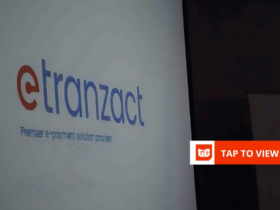

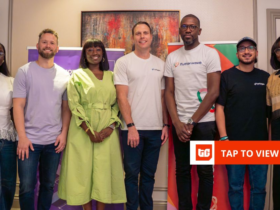

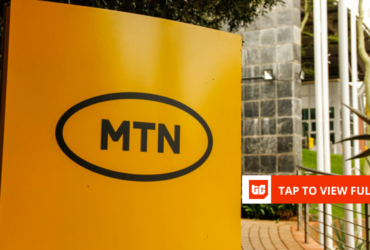
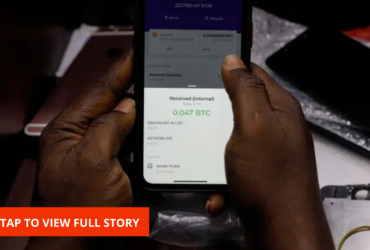


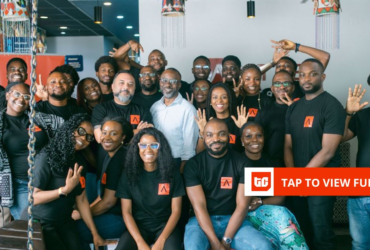

Leave a Reply